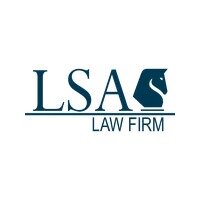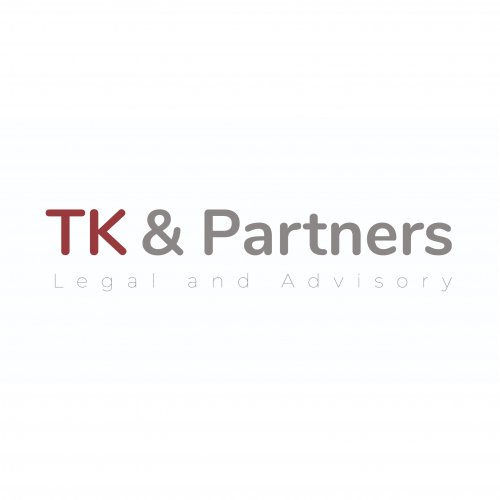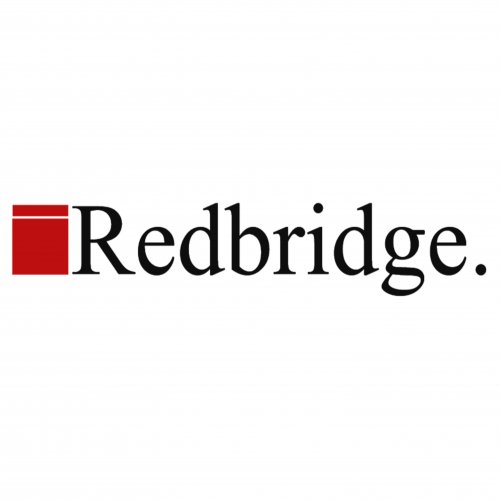Best Data Center & Digital Infrastructure Lawyers in Armenia
Share your needs with us, get contacted by law firms.
Free. Takes 2 min.
Or refine your search by selecting a city:
List of the best lawyers in Armenia
About Data Center & Digital Infrastructure Law in Armenia
Armenia has emerged as a growing hub for digital innovation in the South Caucasus region, with increasing interest in data centers and digital infrastructure development. Data centers are critical facilities housing computer systems, storage, and networking equipment, required for hosting, processing, and transmitting digital information. Digital infrastructure refers to a broader spectrum, encompassing data centers, fiber optic networks, cloud computing resources, and related technologies that support swift and secure connectivity and data exchange.
In Armenia, legal frameworks are evolving to address the unique requirements of data security, digital services, and investment in infrastructure. The government actively promotes modernization through digital transformation initiatives and participation in international technology agreements. However, with technological advancement comes a complex set of legal and regulatory responsibilities involving data protection, compliance, operational licensing, and risk management.
Why You May Need a Lawyer
Engaging with data center and digital infrastructure projects in Armenia often involves navigating intricate regulations and contractual arrangements. You may require a legal specialist in several scenarios, such as:
- Acquiring land or property for building a data center and ensuring all zoning and environmental permits are obtained.
- Negotiating and drafting complex contracts with vendors, customers, or service providers.
- Ensuring compliance with Armenian laws on data protection and cybersecurity, especially handling sensitive or personal data.
- Mitigating operational risks, including liability for data breaches or technical failures.
- Addressing cross-border data transfer and international connectivity regulations.
- Dealing with taxation, customs, and investment incentives for digital infrastructure projects.
- Responding to government inquiries or performing regulatory audits.
- Intellectual property protection for proprietary technologies or software integral to your operations.
Local Laws Overview
Data center and digital infrastructure operations in Armenia are subject to a multi-layered regulatory environment, which includes the following key aspects:
- Data Protection: The Law on Protection of Personal Data is Armenia's primary legislation regulating collection, processing, storage, and transfer of personal data. Operators must follow strict safeguards for how data is handled.
- Cybersecurity: The Law on Information Security and sectoral obligations under telecom and critical infrastructure laws impose duties on cybersecurity standards and incident response measures.
- Licensing: Depending on the type of service provided, data center operators and digital infrastructure firms may require sector-specific licenses overseen by regulatory agencies, including the Public Services Regulatory Commission and the Ministry of High-Tech Industry.
- Telecom and Connectivity: Legal provisions regarding the deployment of fiber optics, network access, and interconnection require adherence to technical standards and, in some cases, coordination with national authorities.
- Foreign Investment and Tax Incentives: Armenia allows significant foreign participation in the tech sector, with available incentives for investment in information technology and infrastructure development.
- Environmental and Construction Laws: Site acquisition and facility development involve complying with urban planning, environment impact assessment, and energy supply regulations.
Frequently Asked Questions
What are the main legal requirements for building a data center in Armenia?
These include property or land acquisition, obtaining construction and environmental permits, and ensuring compliance with zoning laws and technical building codes.
Is a specific license needed to operate a data center in Armenia?
While no single “data center license” exists, operation may necessitate sectoral licenses, especially if providing telecommunication or managed hosting services. Check with the relevant regulatory bodies for your specific services.
How is personal data protected in Armenian data centers?
Data centers must comply with the Law on Protection of Personal Data, which sets out consent, data security, and user rights obligations for all businesses handling personal information.
Are there restrictions on transferring data abroad from Armenian data centers?
Yes, the transfer of personal data outside Armenia is restricted to countries providing adequate data protection and often requires data subject consent or legal agreements.
What should a service contract with a data center provider in Armenia contain?
Contracts should address service levels, uptime guarantees, data security measures, liability for breaches, disaster recovery procedures, and compliance with Armenian law.
How is cyber risk managed under Armenian law?
Armenia mandates security measures for critical information systems, incident reporting standards, and coordinated responses with law enforcement in case of significant breaches.
What tax incentives are available for digital infrastructure investments?
The Armenian government offers tax incentives for technology sector investments, including VAT exemptions and income tax reductions for qualifying IT and infrastructure projects.
What are common compliance challenges for international operators?
Operators face challenges in meeting local data localization laws, aligning cross-border transfer practices, and adjusting business models to local regulatory nuances.
Can foreign entities own 100 percent of a data center project?
Yes, Armenia permits full foreign ownership in most IT and infrastructure sectors, though all businesses must register with Armenian authorities and comply with corporate and tax laws.
What happens if a data center suffers a security breach?
Operators are required to notify relevant authorities, investigate the breach, manage any client impacts, and may face administrative penalties or claims for damages if negligence is proven.
Additional Resources
If you need detailed guidance, these resources and organizations can be helpful:
- Public Services Regulatory Commission of Armenia: Regulates electronic communication and related infrastructure.
- Ministry of High-Tech Industry of Armenia: Sets national IT infrastructure and innovation policies.
- Personal Data Protection Agency: Oversees compliance with data protection legislation.
- Enterprise Armenia: Supports investment projects, including in digital infrastructure.
- Chamber of Commerce and Industry of Armenia: Offers contacts and support for international tech investments.
Next Steps
If you are planning to establish, expand, or engage in data center or digital infrastructure projects in Armenia, consider the following steps:
- Identify your specific area of concern, such as site acquisition, regulatory compliance, or contractual matters.
- Prepare a list of questions and a summary of your business goals for potential legal advisors.
- Research and contact experienced law firms or individual attorneys specializing in IT law, data protection, and investment regulation in Armenia.
- Request an initial consultation to review your project needs and determine the legal requirements that apply to your situation.
- Continue to monitor legislative updates in the fast-evolving data center and digital infrastructure sector.
Consulting with a qualified legal professional will help you navigate regulatory requirements, safeguard your investments, and ensure ongoing compliance while operating in the Armenian digital infrastructure landscape.
Lawzana helps you find the best lawyers and law firms in Armenia through a curated and pre-screened list of qualified legal professionals. Our platform offers rankings and detailed profiles of attorneys and law firms, allowing you to compare based on practice areas, including Data Center & Digital Infrastructure, experience, and client feedback.
Each profile includes a description of the firm's areas of practice, client reviews, team members and partners, year of establishment, spoken languages, office locations, contact information, social media presence, and any published articles or resources. Most firms on our platform speak English and are experienced in both local and international legal matters.
Get a quote from top-rated law firms in Armenia — quickly, securely, and without unnecessary hassle.
Disclaimer:
The information provided on this page is for general informational purposes only and does not constitute legal advice. While we strive to ensure the accuracy and relevance of the content, legal information may change over time, and interpretations of the law can vary. You should always consult with a qualified legal professional for advice specific to your situation.
We disclaim all liability for actions taken or not taken based on the content of this page. If you believe any information is incorrect or outdated, please contact us, and we will review and update it where appropriate.
Browse data center & digital infrastructure law firms by city in Armenia
Refine your search by selecting a city.












